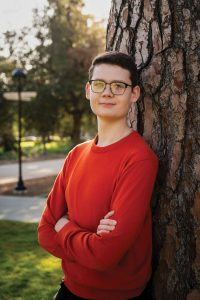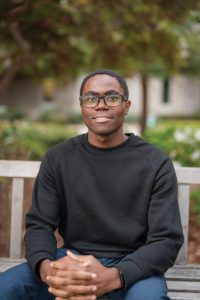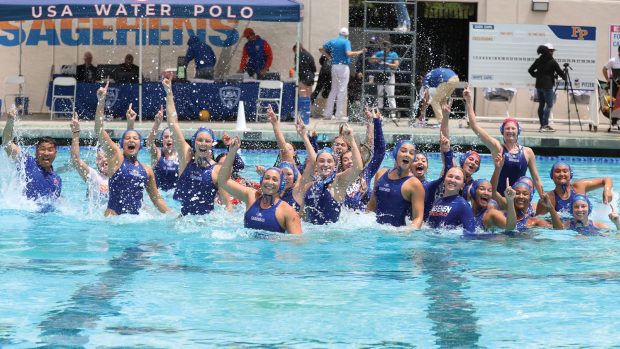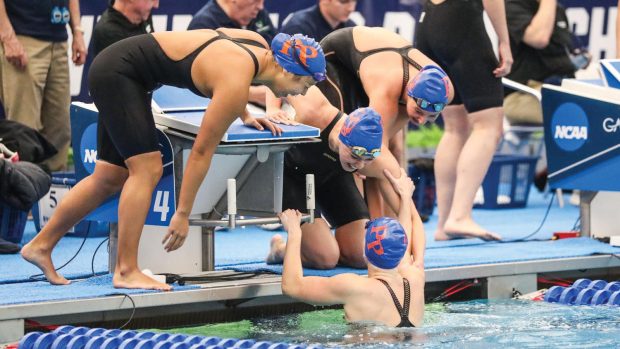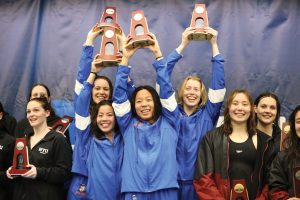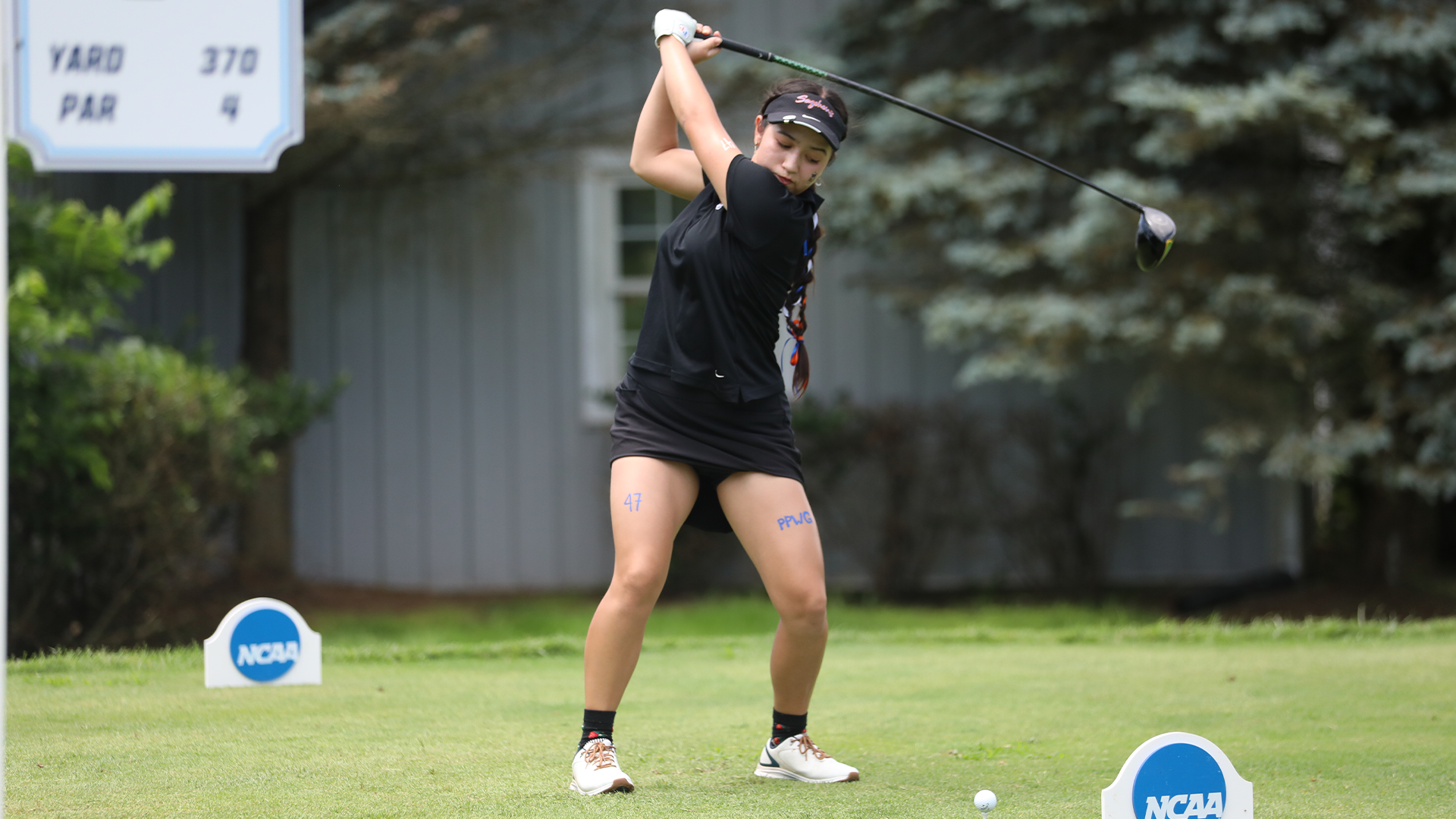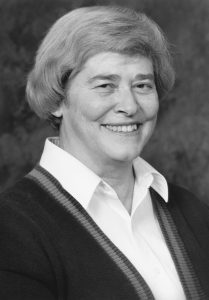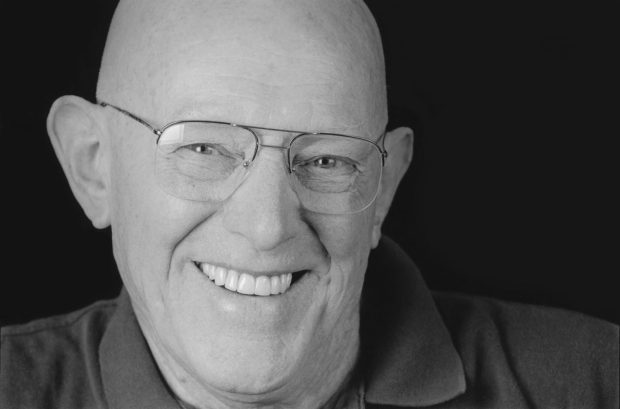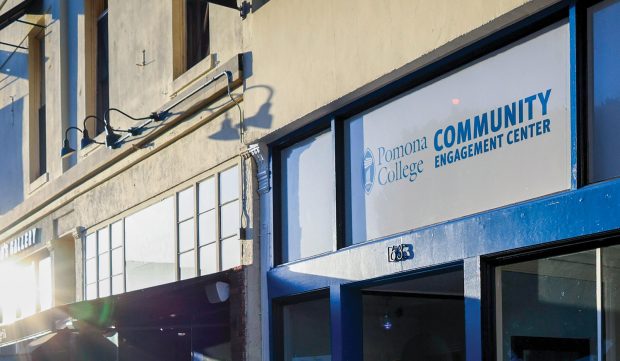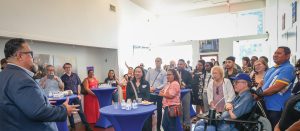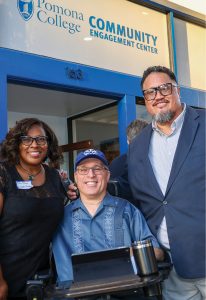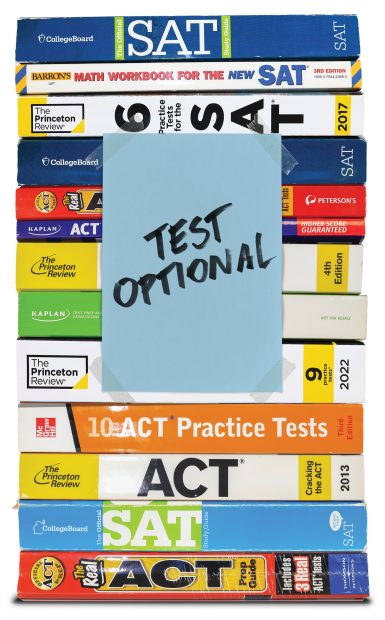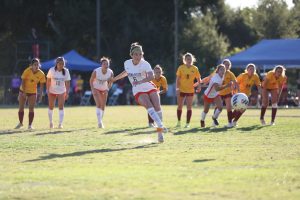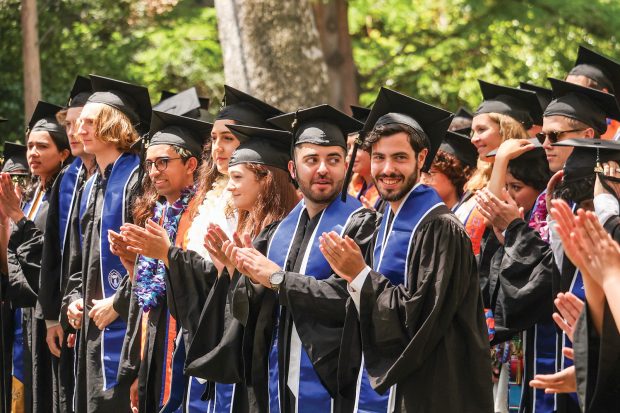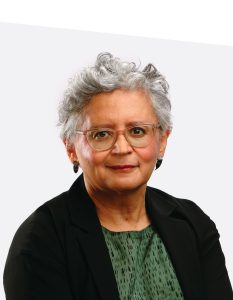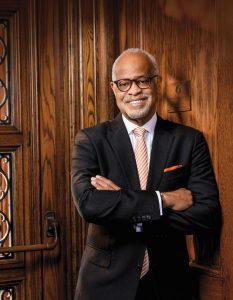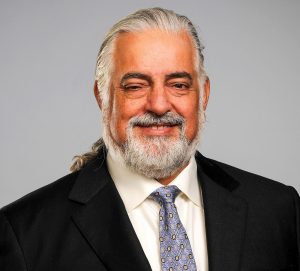Stanislav Vakulenko ’27 has been sleeping better since he arrived at Pomona College from Ukraine last August. When the war started in 2022, he saw a rocket fly by his family’s apartment building in Kyiv. “It was like being in a World War II movie. I could see black smoke, residential buildings burning down,” he says. “What I heard will change me forever.”
Vakulenko is one of six students who enrolled at Pomona this past academic year through the Global Student Haven Initiative because their access to education is challenged by conflict in their home country. Pomona is one of eight colleges and universities in the U.S. committed to accepting and supporting students through the program. The others are Bowdoin, Caltech, Dartmouth, New York University, Smith, Trinity and Williams. The founding members hope more schools will follow suit.
Prince Bashangezi ’27 came to Pomona from Africa, where he had spent his later teen years in a refugee camp in Zimbabwe near the border with Mozambique. Schools in the camp had scant resources, and Bashangezi says students were “basically doomed to fail” the national exams needed to move ahead. He had to get creative to fill in the learning gaps. Every day he removed the battery from the cellphone he had brought from his home country, Congo. He charged it using a small solar source the United Nations High Commission for Refugees had made available to power lighting in the camp. The phone allowed him to access the internet and its extensive educational resources, and he passed the national exams.
Both Bashangezi and Vakulenko spend several lunch hours each week at the language tables in the Oldenborg Center, Bashangezi speaking French and Swahili (two of the many languages in which he is fluent) and Vakulenko practicing Russian and learning Spanish. For Vakulenko, languages—he can converse in Russian as well as his native Ukrainian—could possibly lead to a future career as a translator. His English is nearly flawless, having been honed not only in school in Ukraine but by watching Cartoon Network as a child. Along with Google Translate, “it helped me increase my vocabulary,” he notes—which amazed his teacher at school.
Neither student has settled on a major. Vakulenko says he is leaning toward politics and a possible second major in Russian and Eastern European studies. Bashangezi is considering computer science and possibly politics.
